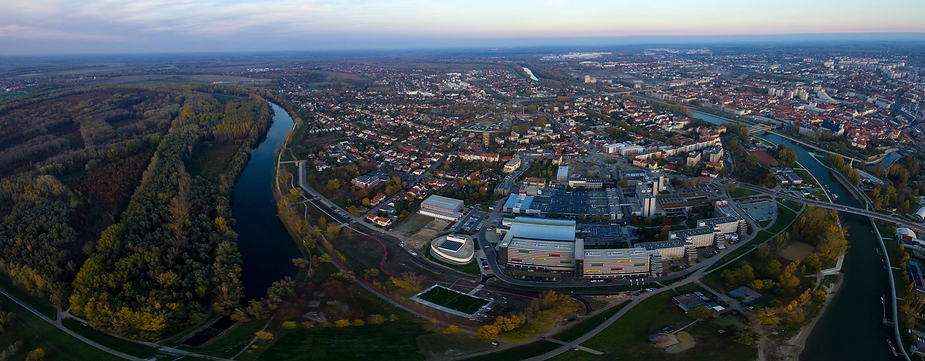Széchenyi István University is once again among the best in the world in THE sustainability ranking
For the fourth time, Széchenyi István University has been ranked among the best in the world on the list of one of the largest international higher education ranking organizations, Times Higher Education (THE), which recognizes universities for their contribution to sustainability, as well as economic and social impact. The institution is among the top 400 in several categories.
The strategic goal of Széchenyi István University is to increase its global visibility, in which the university has made great progress in recent years. Today, the student community consists of international students from 70 countries, the number of foreign students is close to a thousand, and the number of English-language training programmes reaches forty. A milestone in this process is that the institution can be found in both of the two largest higher education ranking organizations. One of them is QS, which basically prepares its ranking based on the research and scientific results every year, and Széchenyi University has been included in it since 2019. The other ranking organization is THE, which, in addition to its traditional list, compiled an equally important one for the fifth time this year, examining the world's higher education institutions based on the 17 sustainable development goals formulated by the United Nations.
In the latest THE Impact Rankings, published on June 1st, Széchenyi István University is again ranked at place 801-1000, just like last year. In addition, the institution was ranked among the world's top 400 higher education institutions in three categories. One of these is 'Sustainable Cities and Communities', which is about resource management and also examines the role of universities in preserving and conserving the heritage of communities, measuring for example the research and practice performance in relation to sustainability.
This places the SZE among the elite of international higher education institutions in terms of its commitment to sustainability.
Széchenyi University was also excellent in the "decent work and economic growth" category, in which it was ranked in place 301-400. Here, its role as an engine of economic growth and its responsibility as an employer were scrutinized, taking into account economic research and the proportion of students participating in professional practice. The institution was also ranked in 301-400 place in the "peace, justice and strong institutions" category, while it is among the top 600 in the world in the category of "industry, innovation, and infrastructure".
 Széchenyi István University not only takes sustainability aspects into account, but also promotes them with its training, research and events.
Széchenyi István University not only takes sustainability aspects into account, but also promotes them with its training, research and events.
"We are proud of this success, which shows that Széchenyi István University performs remarkably at international level as well, both in terms of strengthening the region's competitiveness and sustainability. We strive to contribute significantly to the well-being and development of the society with our research and innovations"
- Emphasized Dr. Bálint Filep, President of Széchenyi István University.
"With this ranking, THE measures universities based on their contribution to sustainability, the biggest challenge and most important goal of the 21st century, which is exceedingly important to us.
The result confirms that our university, as a strong and reliable institution, promotes the development of the region's industry and socio-economic stability. In recent years, the number of higher education institutions has doubled on the list, which means that we maintain our excellent position in an ever-increasing competition."
- Expressed Dr. Lukács Eszter, the university's Vice- President for International Affairs and Strategic Relations, Head of the Sustainability Competence Centre.
Széchenyi István University conducts such a wide range of activities in the field of sustainability that it presents them on separate English and Hungarian websites, organized and based on the 17 sustainable development goals of the United Nations. The website is maintained by the staff of the University Library and Archives, who also play a major role in collecting the data necessary for the institution to appear on the THE list. "The website as a whole shows that our university not only takes sustainability aspects into account, but also promotes them with its training, research and events. Another way of shaping perspectives, with which the institution has a positive effect not only on the students, but also on the residents and organizations of the region," said Ms. Csilla Tóth, Head of the University Library and Archives.











